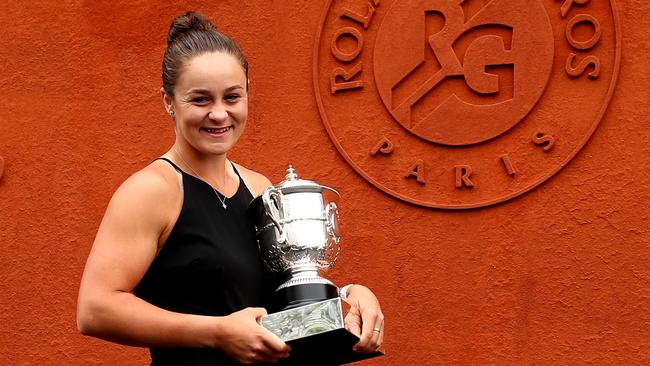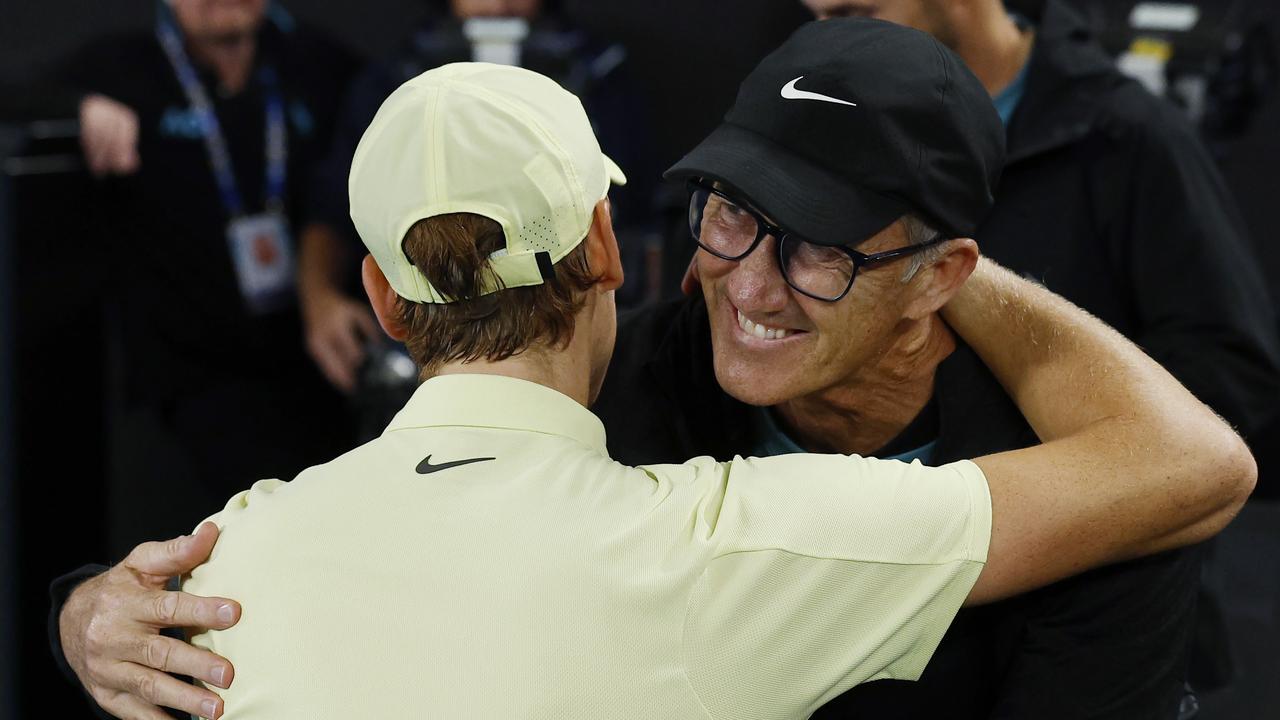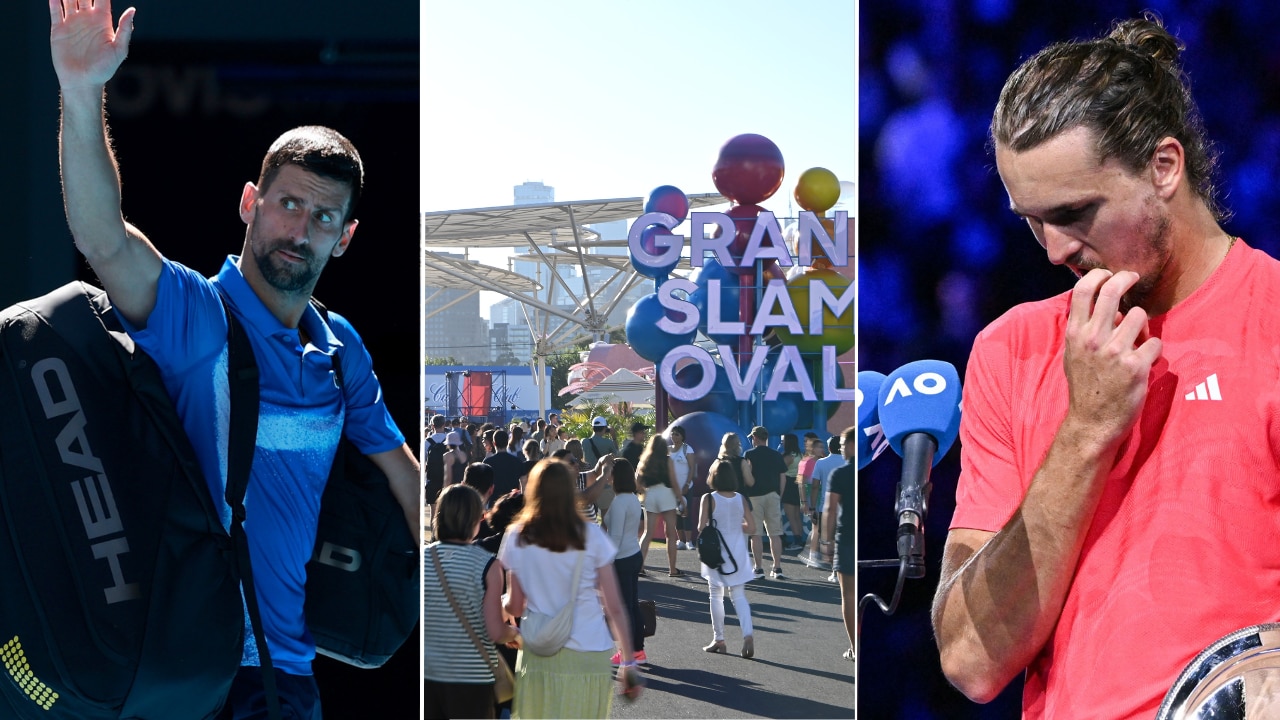Ashleigh Barty’s grand slam-winning recipe: walk away
The bravest decision Ash Barty ever took was to walk away from the thing she did best. She turned her back on tennis to play cricket.

The bravest decision Ash Barty ever took was to walk away from the thing she did best.
She was a tennis prodigy, an enormously talented child star and junior Wimbledon winner. But three years into her professional career she felt like a sporting hostage, captive to the incessant demands and bizarre lifestyle of a never-ending tour.
She desperately missed her family in Ipswich, southwest of Brisbane. She missed her friends. She was 18 years old and yearning for something resembling a normal teenage life. She abruptly quit the tour and turned her back on the game to play cricket.
She is now convinced that if she hadn’t, she wouldn’t have been in Paris this weekend, lifting the Coupe Suzanne Lenglen as Australia’s first French Open champion in 46 years. Most likely, she would have been forever lost to the game.
“It’s obviously a part of my life that I needed to deal with and I feel like it was the best decision that I made,’’ Barty said after winning her first grand slam singles title early yesterday. “It was an even better one coming back.
“I never closed any doors saying, ‘I’m never playing tennis again’. I think I needed time to grow as a person, to mature.’’
The best thing about Barty is the person she has become. In a sport riven by ego, indulgence and enfants terrible, she is honest, humble and respectful of her sport. She values plain speaking but doesn’t abide rudeness or arrogance.
Ben Crowe, a professional mentor and leadership coach to sports stars and corporate chiefs who has worked with Barty for the past year, says these personal qualities are her strength as a tennis player.
“For me, her humility, her gratitude, her respect and her acceptance are her greatest attributes,’’ he told The Australian. “Her goal is to be a good person and, with that foundation, go after her dreams.
“That is 100 per cent authentic. She will always have that humility and respect, rather than getting caught up in ego and pride.’’
Ashleigh Barty is a uniquely Australian story. She is an Aboriginal woman who traces her heritage to the Ngarigo people through her father’s family and what she describes as her “squishy little indigenous nose’’.
She is the youngest of three sisters who hated wearing dresses and wouldn’t play netball because it was a girls’ sport. Instead, she grew up wearing boardies and a backwards baseball cap and spent hours smashing a tennis ball against the garage wall with an old wooden squash racquet.
On the back courts of west Brisbane she was taught the neglected tennis arts from a golden Australian era; how to serve and volley, how to chip and slice, how to play with daring and flair. She also turned out to be a more than handy cricketer, playing for Brisbane Heat in the WBBL during her two-year exile from tennis.
Evonne Goolagong Cawley, the only other Aboriginal woman to win the French Open, has been fascinated by Barty’s development since she was 12 years old. She said her tennis was a “beautiful game full of artistry, movement and power’’.
“It was there for all to marvel at in Paris,’’ Goolagong Cawley said. “She is a joy to watch.’’
No one expected Barty to win the French Open. Not Barty. Not her coach, Craig Tyzzer. Not her parents, Rob and Josie. They made a dash to Europe but had to watch her straight-sets victory against the Czech Republic’s Marketa Vondrousova from England.
Now that she has, her professional life will change dramatically. At the age of 23, she has pocketed a $3.5 million winner’s cheque from Paris and earned enough ranking points to propel her to No 2 in the world. When the tour moves to Wimbledon in three weeks, Barty will carry an unfamiliar twin burden of fame and national expectations.
Alicia Molik, her Fed Cup captain, predicts Barty won’t change. “Ash will be the same tomorrow,’’ she says. “She is just a very normal person, the girl next door.
“I think that’s why all of Australia, and I think the entire world, have a real affinity with her.”
Barty was a couple of weeks shy of her fifth birthday when she first walked into the West Brisbane Tennis Centre with her father Rob on a Saturday morning. It was 2001 and she was a golden skinned, chubby-cheeked girl not much taller than a racquet.
The local coach was Jim Joyce, renowned as one of the best in Queensland. He took one look at the tiny girl and suggested that Rob bring her back in a few years once she was old enough to play. Then he saw her hit a ball. “Jim just looked over to her and said ‘darling, you can come back next week’,’’ Rob Barty recalls.
Australia’s greatest tennis player, Rod Laver, was at Roland Garros to witness Barty’s triumph. After the match, he and Barty stood hand-in-hand on the red clay of centre court.
The last Australian to win the French Open, Margaret Court, in 1973, watched the match from her Perth home. She sees in Barty a good all-round game and a determined woman who has done it tough. She also sees something else. “She has just got a champion’s spirit. You don’t see that in a lot of people.’’
Additional reporting: Courtney Walsh, Mackenzie Scott


